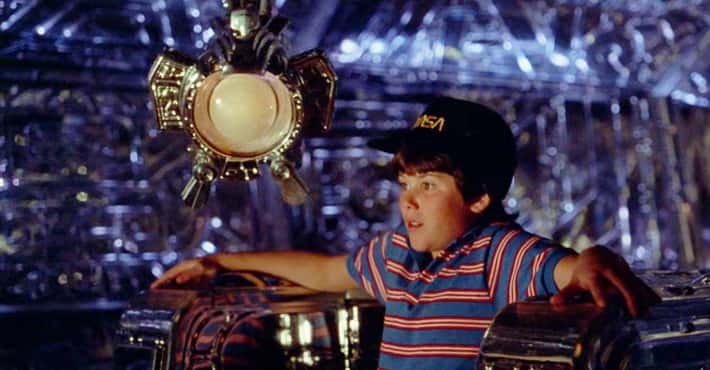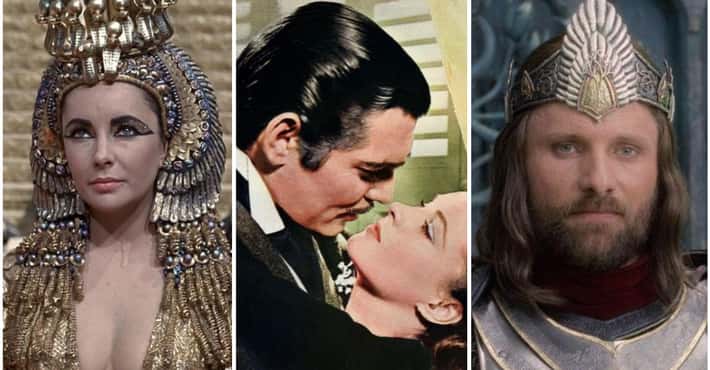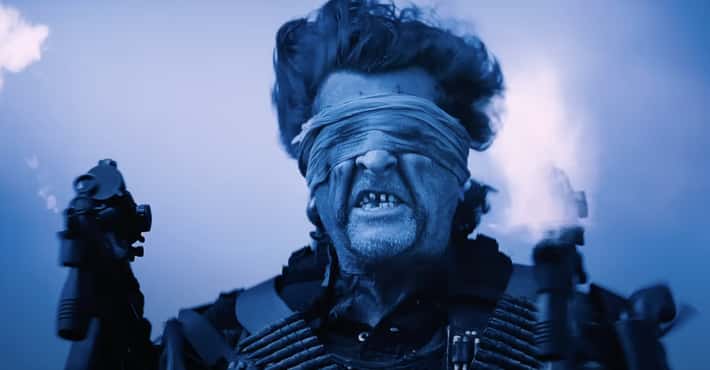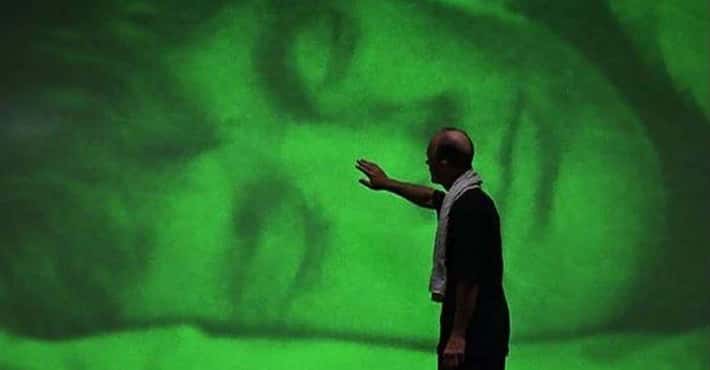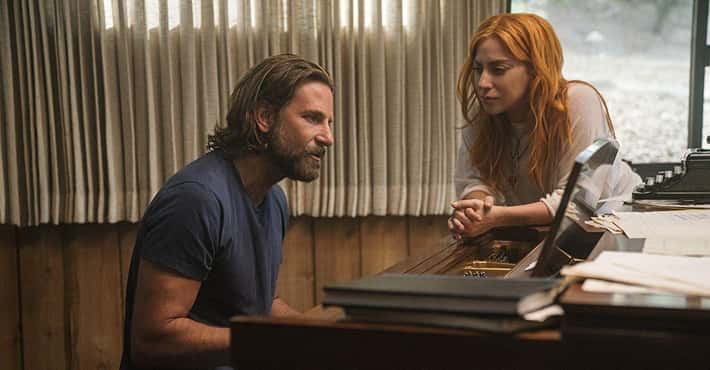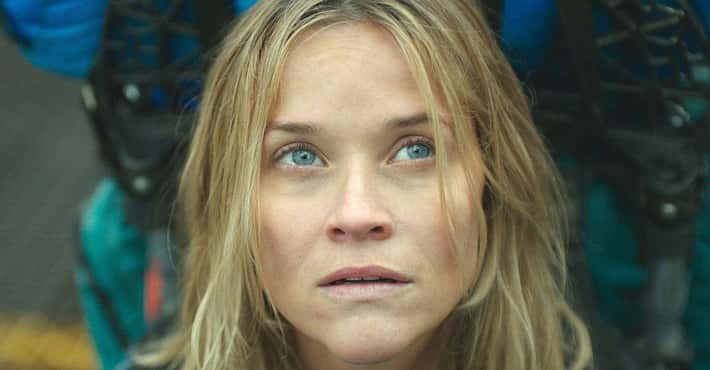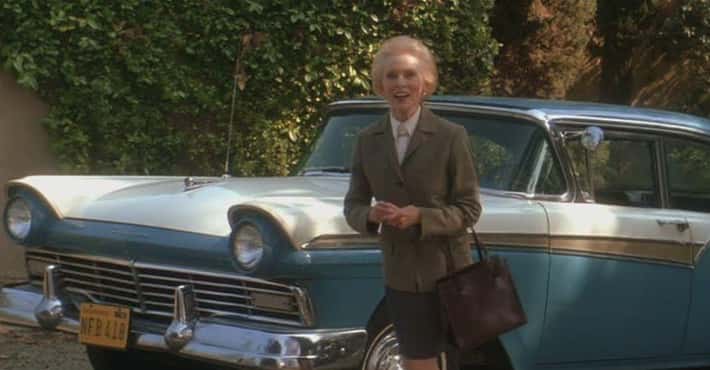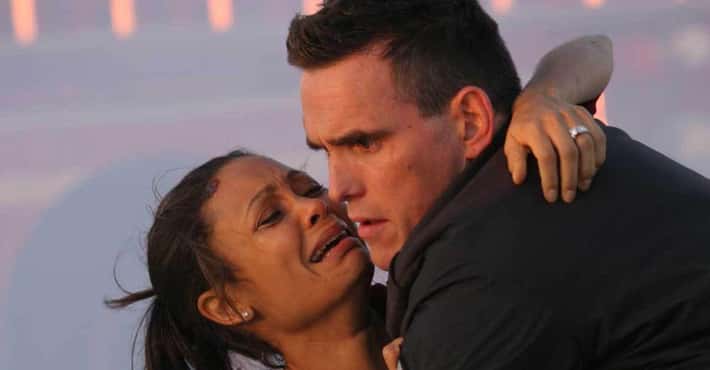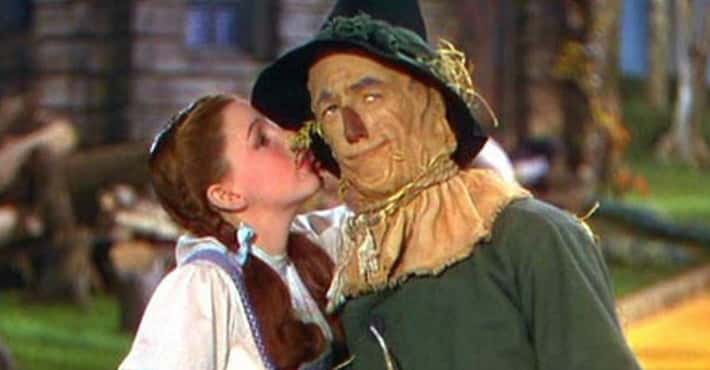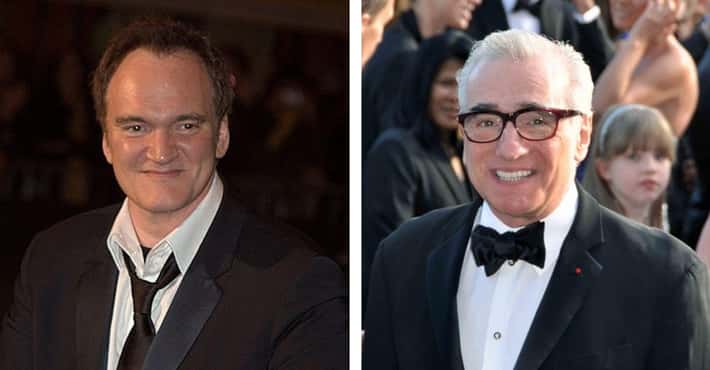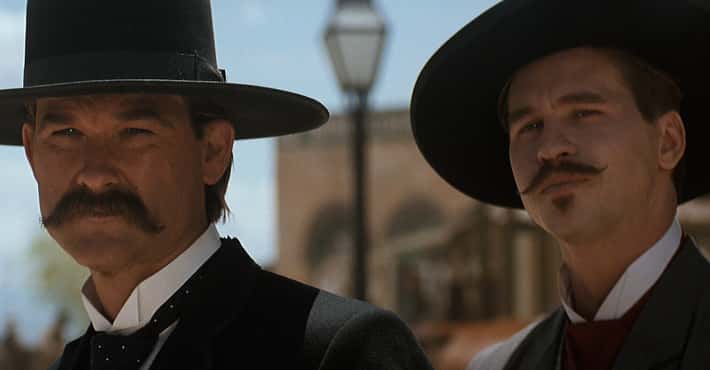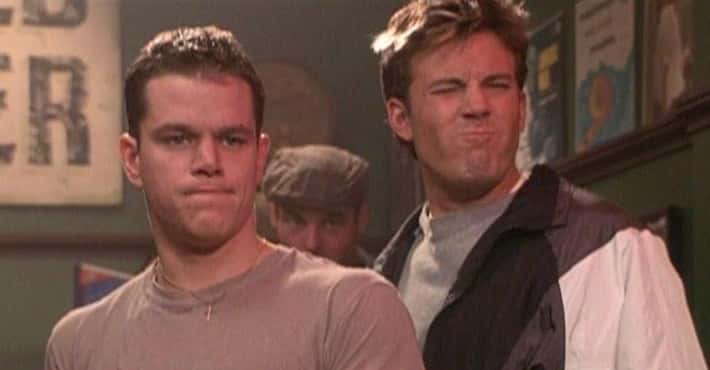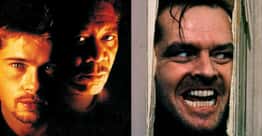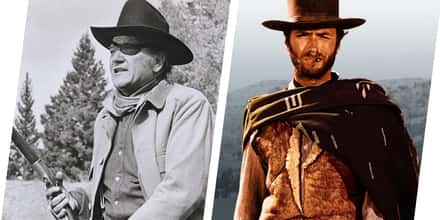The 14 Best Movies About The American Dream That Capture The Good And The Bad
Vote up the movies that truly encapsulate the American dream.
Hollywood has been churning out movies about the American Dream since the beginning of cinema over 100 years ago. In the films, sometimes the hero’s dream is unobtainable, in other movies the dream is alive and well.
The promise of the American Dream has brought people from all over the world in search of a better life. Children are raised with the idea that because the United States is a nation of freedom and equality, hard work and perseverance will lead to success and personal fulfillment.
But, it’s become obvious that the American Dream is not obtainable for all. In films like There Will Be Blood and Citizen Kane, the protagonists sit on a stockpile of wealth and power but die alone in empty soulless mansions, their bodies and minds weakened by greed.
On the flip side, in the biographical drama, The Pursuit of Happyness, Chris Gardner (Will Smith) goes from homeless to intern to full-time stock broker to owning his own firm through resilience, hard work, and sacrifice.
What’s the best movie about the American Dream? Is it a heartwarming rags-to-riches story or a consumed-by-greed cautionary tale? Vote up the movies you think encapsulate the American Dream.
- 140 VOTES
The Dream: In Paul Thomas Anderson’s 2007 period drama, adapted from Upton Sinclair’s 1927 novel Oil!, Daniel Plainview (Daniel Day-Lewis) is an oilman during Southern California’s late 19th century oil boom. His singular goal is to generate as much personal wealth and power as possible.
The Nightmare: Several men are looking to cash in on oil at the turn of the century. Plainview’s biggest obstacles are his competitors and buying land from the people who live in the area where he wants to drill.
The greedy, ruthless, and selfish Plainview uses cutthroat methods like scamming innocent people to obtain the land. He also squares off against local politicians who are weary of the oilman’s manipulative methods.
Plainview doesn't seem to have a problem with any ethical dilemmas. He often uses his young son to make him look like a family man working in a family business. In the end, the tycoon is incredibly wealthy, but he winds up all alone, even his son walks away from the toxic man.
Why It’s Great: Many critics named Anderson's rebuke of capitalism as one of the best films of the 21st century. The epic was nominated for eight Oscars, including best picture. Daniel Day-Lewis won the Oscar for best actor, delivering one of the actor's finest cinematic performances.
Critic Alex Papaioannou from In Session Film wrote:
There are few contemporary directors who craft character pieces as compelling as PTA can, but when matched with the sheer intensity and insanity that Day-Lewis brings to the role, the impact is undeniable. 15 years later, There Will Be Blood remains one of the greatest American films to ever be crafted. And the idea of Daniel Plainview, as wicked as he may be, has only multiplied and thrived in the years since.
More There Will Be Blood- #193 of 375 onThe Best Movies Based On Books
- #56 of 80 on80 Good Long Movies To Watch, Ranked
- #3 of 139 onThe Best Movies Of 2007
- 241 VOTES
The Dream: In the 2006 biographical drama The Pursuit of Happyness, salesman Chris Gardner (Will Smith) wants to achieve financial stability for himself and his son Christopher Jr. (Jaden Smith.)
The Nightmare: Chris has invested his life savings into portable bone density scanners that doctors don’t seem to need or want. The salesman’s income isn’t stable, and the financial hardships cause conflict in his marriage.
Chris works whatever odd jobs he can to earn a paycheck but looks towards the long-term future. He takes an unpaid internship at a brokerage firm with the hopes of becoming a full-time stockbroker. His financial hardships only get worse without a steady income, and he becomes homeless.
Chris and his son often have to stay at homeless shelters. His internship is also no guarantee for future employment. Dean Witter Reynolds is a top brokerage firm, and the competition for a job is extremely competitive.
In the end, Chris’s perseverance pays off. He impresses the firm’s partners so much that they awarded him a full-time position.
The epilogue reveals that he becomes successful enough to open his own brokerage firm which he later partly sells off in a multi-million dollar deal.
Why It’s Great: The Pursuit of Happyness is a feel-good movie with an American Dream happy ending.
Smith also received praise for his performance. Critic Todd Gilchrist from IGN wrote:
Smith, meanwhile, gives a fantastic, selfless performance as Chris. An actor with almost quantifiable likeability [sic], Smith relinquishes the actorly vanity that kept him charming in movies past and creates a real, complicated and not always sympathetic figure.
- 326 VOTES
The Dream: DJay (Terrence Howard), a middle-aged pimp and drug dealer from Memphis, wants to produce a hit rap song and become a hip-hop star.
The Nightmare: DJay is a pimp and a drug dealer, but he wants more. He doesn’t have the resources or the money to make a rap record. He’s also closing in on 40-years-old, decades older than most people who make it in the music business. DJay doubts whether he has the talent to succeed and other people doubt him as well.
DJay feels he can use his life of crime in his music. He works a hustle to get recording equipment and studio time. He is able to give successful Memphis rapper Skinny Black (Ludacris) a copy of his demo. However, Skinny Black destroys the tape. DJay nearly beats him to death and winds up shooting one of the men in Black’s group.
DJay lands in jail for almost one year but is vindicated when his single becomes a hit.
Why It’s Great: Hustle & Flow received rave reviews from fans and critics. The film’s leading track “It's Hard out Here for a Pimp” won the Oscar for best original song.
The underdog narrative is a common one. However, the movie manages to stand out because of how different DJay is from the traditional movie protagonist.
Critic Paul Arendt from BBC.com wrote:
In story terms, this is as familiar as they come, but Hustle & Flow scores highly in its unblinking view of poverty, and in the disturbing contradictions embodied by its leading man. DJay is [a] complex and deeply flawed character who is hard to love, and it is a tribute to Howard's subtle, committed performance that we eventually want him to succeed.
More Hustle & Flow- #116 of 143 onThe Best Movies of 2005
- #78 of 472 onThe Best Black Movies Ever Made, Ranked
- #125 of 175 onThe Best Movies About Music
- 430 VOTES
The Dream: Set in the 1950s, a young couple, Frank (Leonardo DiCaprio) and April (Kate Winslet) Wheeler, are having marital struggles. They want to leave behind their boring suburban life in Connecticut and find a more meaningful existence.
The Nightmare: On the outside, it looks like the Wheelers are living the American Dream. However, Frank and April are unhappy and want to break free from conformity and societal norms. Frank is unfilled with his corporate job. April once dreamed of being an actress but is stuck in the role of mother and housewife.
The Wheeler’s marriage suffers, and they wind up resenting each other. They devise a plan to move to Paris in hopes of a more fulfilling life, but money issues stand in the way. Also, their friends are not supportive of their sense of adventure.
Frank and April are also filled with self-doubt and fear. They wind up both having affairs. Their dream of moving to Paris is sidelined when April becomes pregnant with her third child.
The pair fight about their unborn child, and the results are tragic.
Why It’s Great: Sam Mendes’s 2008 drama re-teams DiCaprio and Winslet for the first time since the pair starred in Titanic.
Critic Brian Eggert from Deep Focus Review wrote:
Based on the fatalistic 1962 novel by Richard Yates, this deeply upsetting tale of 1950s conformity acknowledges how the spirit that birthed America is no longer a pregnant womb ripe with potential. Instead, this beautifully shot and brilliantly acted picture suggests our romanticized design for the happy homestead is a diseased security blanket. Addressing the dissatisfaction of their routine lifestyle within the first scenes, the film examines the marriage of Frank and April Wheeler, played to perfection by Leonardo DiCaprio and Kate Winslet. They’re homeowners in Connecticut’s sleepy community on Revolutionary Road, a stretch that, according to their real estate agent Mrs. Helen Givings (Kathy Bates), is for better people. All their neighbors regard them as special, a perfect couple blessed with two children, a fine home, and a happy existence. Indeed, they’re playing their parts nicely.
More Revolutionary Road- #70 of 133 onThe Most Utterly Depressing Movies Ever Made
- #329 of 675 onThe Best Movies Roger Ebert Gave Four Stars
- #36 of 55 onThe Saddest Romance Movies That Will Make You Cry
- 520 VOTES
The Dream: In the 1986 animated musical, the Mousekewitzes (a family of Russian-Jewish mice) emigrate to the United States after cats destroy their home. They believe the US is a country free of felines.
The Nightmare: While the family is on a boat set for New York City, the young son Fievel Mousekewitz gets separated from his family and goes overboard.
The Mousekewitzes grieve because they think that Fievel has died. However, he makes it to New York City where he seeks to reunite with his lost family.
Young Fievel is in a new country all alone. He doesn’t speak the language and is an outsider on the tough streets of New York City. Initially, the cats pretend to be his friend, however, they quickly turn on him. All the immigrant mice in the movie become disenchanted because they heard that the United States was “cat-free.”
The toughest part for Fievel is keeping up the dream that he will once again be with his family. As more time passes, the mouse loses hope until the day that the family finally reunites and can pursue life together in their new home.
Why It’s Great: An American Tale is about a family of mice, but it could easily be about any human immigrant traveling to the United States to pursue a better life. The American Dream is alive and well in the animated musical.
Critic Eleanor Ringel Cater from the Atlanta-Journal Constitution wrote:
[It] celebrates the rich diversity of our melting-pot heritage; it doesn't insult kids (or adults) with fifth-rate Saturday-morning non-animation; and it gives us some wonderfully memorable characters that weren't already sitting on the Toys R Us shelves.
More An American Tail- #154 of 399 onThe Best Movies Of The 1980s, Ranked
- #73 of 204 onMusical Movies With The Best Songs
- #72 of 453 onThe 400+ Best Animated Kids Movies
- 617 VOTES
The Dream: Michael Corleone (Al Pacino) wants to legitimize his family's crime operations. Told in flashback, his father Vito Corleone (Robert De Niro) arrives in the United States from Sicily and begins to build his family’s empire.
The Nightmare: Vito lives with his family in a poor neighborhood in New York City. The neighborhood is being run by Don Fanucci (Gastone Moschin), who demands money from local businesses and extorts Vito.
Vito kills Fanucci and becomes the most respected figure in the community. The new Don provides “favors” to the people and Vito begins to build his family’s business legacy.
Michael is dealing with multiple obstacles. Inside his own family, his brother Fredo (John Cazale) has betrayed him. His wife Kay (Diane Keaton) sees him as a ruthless, greedy man who she no longer wishes to be married to. She even tells him that she had a baby aborted because she didn’t want to bring another one of his children into the world.
The threats outside the family are just as extreme. The Rosato brothers and Hyman Roth (Lee Strasberg) want to wipe out the Corleone family and take back what they believe is theirs. Michael wants to go legitimate, but the political minds in Nevada see him as a criminal, not a man to do business with.
Michael is also dealing with Senate hearings that aim to abolish his life’s work. At the end of The Godfather II, Michael, the once sweet, naive, decorated war veteran who vowed he would never get into his father’s business, has become consumed by greed and power. He sits all alone; he’s killed his brother and his wife is out of the picture.
The vision of the American Dream that Vito had when he came to the United States as a young boy has vanished.
Why It’s Great: The Godfather II is widely considered one of the greatest sequels ever made, some would even argue that it trumps the original film. The film won six Oscars and became the first sequel to ever win best picture.
Francis Ford Coppola expertly cuts between father in 1917 and son in the late 1950s to create a picture of the shattered vision of the American Dream.
Mark Johnson from Awards Daily wrote:
Through a compelling dual character study, the sequel beautifully explores the intertwined yet distinct paths of its protagonists, mirroring and diverging from its predecessor. The result is a breathtaking display of filmmaking that leaves us in awe of its expansive scope, meticulous attention to detail, and sheer perfection.
- #311 of 769 onThe Most Rewatchable Movies
- #3 of 96 onThe Very Best Oscar-Winning Movies For Best Picture
- #24 of 375 onThe Best Movies Based On Books
- 725 VOTES
The Dream: Charles Foster Kane (Orson Welles) inherits a fortune and uses it to create a media empire. Kane wants to buy up as many newspapers as possible to become the most powerful person in the country.
The Nightmare: Kane’s parents send him away when he is a child. A banker named Walter Thatcher (George Coulouris) raises him but Kane winds up resenting the surrogate father.
At the age of 25, Kane inherits a large sum of money, making him one of the richest men in the world. He buys a newspaper and begins to publish scandal instead of news. Kane battles with his ego and buys more media outlets. He wants to be able to control public opinion.
The more wealth and power that Kane generates, the lonelier he becomes. His romantic relationships fail as his arrogance makes him intolerable and unable to concede any ground. He also alienates his best friend and one of his loyal reporters Jedadiah Leland (Joseph Cotten).
Kane becomes isolated and completely shut off from society. He dies alone in his Xanadu mansion holding a snow globe and saying the words “Rosebud.” Citizen Kane is the dark side of the American Dream, one filled with greed and selfishness.
Why It’s Great: Citizen Kane is widely considered the greatest film ever made. Despite being Welles’s first time behind the camera, his pioneering use of non-linear narrative, deep focus photography, and non-traditional camera angles make the 1941 movie timeless.
Critic Noah Gittell from Washington City Paper wrote:
Citizen Kane innovated several filmmaking techniques. The film pioneered a genre. Its insights into American politics haven’t aged a day. It was selected as the best film of all time by film magazine Sight and Sound for five decades running, from 1962 to 2002 (it was down to number 3 in the 2022 poll). This is a precarious place for any film to exist. But perhaps the greatest achievement of Citizen Kane is that its greatness has never been eclipsed by its “greatness.”
More Citizen Kane- #704 of 769 onThe Most Rewatchable Movies
- #145 of 191 onThe Best Movies For Men
- #171 of 228 onThe 200+ Best Film Scores Of All Time
- 823 VOTES
The Dream: Nick Carraway (Tobey Maguire) serves as the movie’s narrator. He is an outsider midwesterner amongst the wealthy in New York and hopes to blend in with the high society folks. Jay Gatsby (Leonardo DiCaprio) is a wealthy man who lives in a gothic mansion, but all he wants is to win back the love of his life, Daisy Buchanan (Carey Mulligan.)
The Nightmare: Nick is immediately drawn to the mysterious and decadent Gatsby. However, the writer eventually sees that the wealthy elite are not as they appear from the outside.
Nick’s main obstacle is his own morality. On the surface, Gatsby and his lavish parties are exciting. However, once Nick starts to peel away the shiny facade, he sees Gatsby’s reality as fake.
Gatsby is a self-made millionaire. However, there is a disconnect between his “new” money and the old-school wealthy elite. His excess of riches does not matter because the woman he loves, Daisy, is married to another man. Gatsby tries to win back his lost love by throwing expensive parties.
Gatsby’s end is tragic; he is murdered and few people show up at his funeral. The hundreds of high society “friends” he's entertained over the years are nowhere to be found. Meanwhile, the once-optimistic Nick has become completely cynical. He sees that wealth and power can lead to an empty life.
In The Great Gatsby, the American Dream seems unobtainable, even for people who appear to have it all.
Why It’s Great: Baz Luhrmann’s highly stylized 2013 adaptation of F. Scott Fitzgerald’s 1925 novel features the auteur’s flashy cinematic camera movements, gorgeous cinematography, and a modern soundtrack.
Critic Deborah Ross from The Spectator wrote:
This is fantastically enjoyable, and a blast. It is wild and rampant and thrilling. It's the best film I've seen since the last best film I saw, whatever and whenever that was.
More The Great Gatsby- #108 of 375 onThe Best Movies Based On Books
- #34 of 80 onThe Best Period Romance Movies
- #47 of 114 onThe Greatest Movie Remakes Of All Time
- 93 VOTES
The Dream: In Francis Ford Coppola’s 1988 biographical dramedy set right after WWII, inventor Preston Tucker (Jeff Bridges) wants to reinvent the car industry by introducing the Tucker 48. The groundbreaking car was designed with safety and affordability in mind. The innovator also implemented advanced designs like fuel injection, disc breaks, and aerodynamic styling.
The Nightmare: The ambitious Tucker faces off against the Big Three automakers: General Motors, Ford, and Chrysler. They view his new ideas as a threat to their bottom line and use whatever political pull they have to stop him from achieving his dream.
Tucker must also secure enough financing to get the Tucker 48 onto assembly lines. Financial backers are weary of supporting an unproven commodity.
The Securities and Exchange Commission accuses Tucker of stock fraud and his public image takes a nose dive. He is forced to go to court to defend himself.
Tucker’s American Dream is shattered when his company goes bankrupt. He couldn’t compete against major corporations despite his superior product.
Why It’s Great: Coppola’s film was based on a true story. The biopic bombed at the box office, but it is worth seeing on the strength of Bridges’s charismatic performance and Coppola’s stylized direction.
Critic Sean Mulvihill from FanboyNation.com wrote:
Instead it’s much more vibrant than you’d believe thanks in part to the film’s great production and costume design… which pops off the screen because of the brilliant cinematography from the great Vittorio Storaro. Coppola, of course, has a great eye for staging and blocking scenes so that even the most tame scene of board meetings is visually appealing. There’s a classical nature to Coppola’s mise-en-scène and the legendary filmmaker employs some neat tricks to really fill out the frame, such as combining two locations into a single set giving the scene the illusion of being a split screen.
- #42 of 122 onThe Best Movies Of 1988
- #14 of 18 onGreat Underdog Movies That Have Nothing To Do With Sports
- #50 of 105 onThe 100+ Best Movies With Cars
- 100 VOTES
In the Heights
- Photo:
The Dream: Based on Lin-Manuel Miranda’s stage play, the 2021 musical drama tells the story of the people from Washington Heights, a predominantly Dominican Republican community in New York City. The film follows several characters who dream of a better life.
The Nightmare: Many in the tight-knit community in Washington Heights struggle to make ends meet, especially since their neighborhood is becoming more gentrified. The film’s main character Usnavi (Anthony Ramos) works in a bodega and dreams of returning to the Dominican Republic to take over his father’s business. However, Usnavi has limited funds.
The whole community celebrates Nina (Leslie Grace), who is home from Stanford University. However, Nina may be unable to return to school because she lost her scholarship. The coed had trouble finding enough time to study because she worked two jobs. Nina later admits that she was one of the few Latinas at her school, and she felt that she was a victim of racism.
Vanessa (Melissa Barrera) dreams of leaving the neighborhood to land a job in the fashion world. However, her rental application is turned down.
The characters all face multiple obstacles that stand in their way. Money, family obligations, romantic relationships, and fear block their path.
In the Heights takes a positive look at the American Dream. However, the dream is redefined. It’s not about mansions and fancy cars; the American Dream is about the love and happiness found in a community.
Each character, with the help of the community, can get a shot to fulfill their dream. For Usnavi, it turns out that he doesn’t need to travel to the Dominican Republic to live his dream. He finally sees the neighborhood as his true home.
Why It’s Great: The feel-good film is an adaptation of Lin Manuel Miranda’s Tony Award-winning musical of the same name. The music and dancing steal the show. The upbeat songs speak about Latin culture and leave a lasting impression.
Critic Deborah Ross from The Spectator wrote:
The streets hum and thrum with vitality and some of the song-and-dance set-pieces are huge, which is what we like, and one is set in an outdoor swimming pool, which is what we especially like. The choreography (by Christopher Scott) is always terrific and there’s that unstoppable energy which, given the film’s running time, might eventually have you shouting: ‘Stop. Stop with the unstoppable energy! I’m over it!’ But, you know, what the hell.
- 110 VOTES
The Dream: Set in the 1980s, Minari tells the story of a Korean-American family who leave their stable life in California and move to the Ozarks to search for their American Dream.
The Nightmare: Jacob Yi (Steven Yeun), his wife Monica Yi (Han Ye-ri), and their children David Yi (Alan Kim) and Annie Yi (Noel Kate Cho) each seek their version of the American Dream in the strange rural land of the Ozarks in Arkansas.
They begin work on a 50-acre farm to sell Korean fruits and vegetables. Jacob and Monica want to build a better life for their family but financial issues and cultural battles stand in the way. Jacob feels that his land is a perfect mecca, an Eden, while Monica remains a skeptic. They work twice as hard for half as much, and Jacob's ambition strains the marriage.
Both of the children struggle to adapt to their new home. David also battles a heart condition and fears not being able to live a normal life. The cultural war rages inside Anne, who wants to be a part of the American lifestyle but also wants to hold on to her Korean heritage.
Monica's mother Soon-ja (Youn Yuh-jung) travels from South Korea to help the family. Soon-ja is unlike the traditional grandma, she is eccentric and speaks her mind. She also has issues adapting to a new culture.
When a fire destroys their precious land, the family is devastated. However, they show their resilience by battling the obstacles together. Jacob sells his farm equipment and pays off their debts.
In the end, the family may not have achieved everything they wanted. However, they realize that together they can face any adversity.
Why It's Great: Minari earned six Oscar nods, including best picture. Youn won the Academy Award for best supporting actress, which made her the first Korean to ever score Oscar gold.
Minari is a beautifully shot movie that aptly blends heavy dramatic moments with levity.
Critic Clarisse Loughrey from the Independent wrote:
Minari is a story of the American Dream. But [director Lee Isaac] Chung’s brilliance is in how he adds depth and complexity to those foundational ideas - it’s in the spaces in between that we find love, loss, hope, and regret.
More Minari- #120 of 156 onThe Best Ensemble Movies Of All Time
- #44 of 50 onThe Best Movies About Men Raising Kids
- #14 of 42 onThe Best Sundance Grand Jury Prize Winners
- 120 VOTES
The Dream: Cassius (Cash) Green (Lakeith Stanfield) needs money to move out of his uncle’s garage. He finds a job as a telemarketer in hopes of achieving financial stability.
The Nightmare: While working as a telemarketer at RegalView, Cash discovers he is more successful if he uses his “white voice” on the phone. Cash receives a promotion and begins work as an elite Power Caller at WorryFree. He starts making great money and scores a fancy apartment with all the perks.
An ethical dilemma arises when he discovers that the company exploits its workers. His union friends are upset with Cash, but he falls in love with his new fancy lifestyle. Additionally, his girlfriend breaks up with him because she feels that the money and success have changed him.
The CEO of WorryFree, Steve Lift (Armie Hammer), tells Cash that he plans to turn his workers into Equisapiens (horse people) to boost profits. Lift offers Cash $100 million to become a horseman for five years. Even though he turns it down, he later transforms into an Equisapien.
The American Dream is obtainable only for the rich in Sorry to Bother You.
Why It's Great: Boots Riley satirizes the American Dream in his directorial debut. The film is an original absurd black comedy that generates uneasy laughs and raises questions about the nature of capitalism.
Critic Jourdain Searles from Bitch Media wrote:
A hilarious, intelligent, and socially relevant satire of American business and capitalism, and hands-down one of the best films of 2018.
- 133 VOTES
The Dream: In Steven Spielberg’s 2021 adaptation, Tony (Ansel Elgort) and Maria (Rachel Zegler) fall madly in love at first sight. However, the star-crossed lovers come from warring cultures in New York City.
Rival gangs, the Sharks and the Jets, fight to save their turf.
The Nightmare: Tony and Maria don’t care about gang turf or culture clashes. They want to be together. Tony is a native New Yorker looking to leave behind the world of the Jets and work an honest job. Maria, who is Puerto Rican, fights with Anita (Ariana DeBose) over Tony. Anita wants to protect Maria and sees Tony as a threat.
The Jets, a white gang, feel threatened by the Sharks, who are Puerto Rican.
Both gangs experience prejudice from the local police. After Maria’s brother Bernardo (David Alvarez) sees Maria and Tony falling for each other at the dance, he meets with Shark leader Riff (Mike Faist) to discuss the terms of a rumble.
The characters let their cultural prejudice and inability to adapt lead them to the rumble, where tragedy ensues. Bernardo stabs Riff. Tony, who had gone to the rumble to stop the violence, winds up stabbing Bernardo.
Later, miscommunication leads to Chino (Josh Andrés Rivera) killing Tony.
The cycle of violence continues, even though many of the gang members want it to stop. The American Dream in West Side Story doesn’t exist for all. Despite the promise of a better life in America, the poor and Latino communities don’t always get their shot.
Why It’s Great: The 2021 musical was nominated for seven Academy Awards, including best picture. DeBose won the Oscar for best supporting actress for her raw and honest portrayal of Anita.
Writer Tony Kushner stays loyal to the original story, and Spielberg gives the film a modern cultural update.
However, it’s the music and choreography that shine.
Critic Ryan Oquiza from Rappler wrote:
David Newman arranges the legendary composition of Leonard Bernstein to ensure the timelessness of the songs is never lost. The music sounds more punchy, and Stephen Sondheim’s lyrics maintain its festive energy. Justin Peck’s choreography is much more explosive, sometimes even a bit too much, and adds a kinetic verve that can only work alongside the jaggedness of Manhattan.
More West Side Story- #27 of 35 onEvery Steven Spielberg Movie, Ranked By Fans
- #51 of 68 onThe Most Rewatchable Movie Musicals
- #18 of 19 on19 Times A Remake Lived Up To The Original Classic
- 146 VOTES
The Dream: Vladimir Ivanoff (Robin Williams), a saxophone player who is part of a Russian circus, abruptly decides to defect while visiting New York City.
The Nightmare: Vladimir’s life in Russia is difficult. However, he accepts the way of life. He travels to the United States with the circus and is opposed to his friend’s plan to defect.
However, he hastily makes the decision to defect while shopping in Bloomingdale’s. He has no plan and never thought he would live in the United States. Thanks to a perfume girl who would later become his girlfriend and a Bloomingdale’s security guard, Vladimir has two American friends and a place to live.
Vladimir is worried about the penalties for defecting for himself and his family in Russia. He is also concerned the KGB will track him down. The sax player doesn’t speak English well and struggles to adapt to a different country with different cultures. The film also takes place during the Cold War Era.
He attempts to seek asylum but the process of immigration is difficult. He finds work in jobs like busboy and McDonald’s cashier and eventually makes enough to move into his own place. But, he misses performing as a musician. He also misses his family and is saddened to hear that his grandfather passed away.
At the end of the movie, Vladimir scores a job playing the saxophone at a Russian nightclub.
His American Dream is alive and well.
Why It’s Great: The 1984 dramedy aptly blends tragic moments with heartwarming laughs.
Critic Marylynn Uricchio from Pittsburgh Post-Gazette wrote:
[Director Paul] Mazursky effectively shows that there is no such thing as a real American - the melting pot continues to melt. His script, written with Leon Capetanos, offers a vivid look at the phenomenon, and a glowing reminder of just what makes America great.

















